One of the most exciting and influential areas of science today, biochemistry and molecular biology (BCMB) exists at the intersection of biology and chemistry. Exploring the cellular and molecular building blocks of living organisms is a fascinating — and humbling — experience, as you uncover the very conditions and interactions that make life (and you) possible.
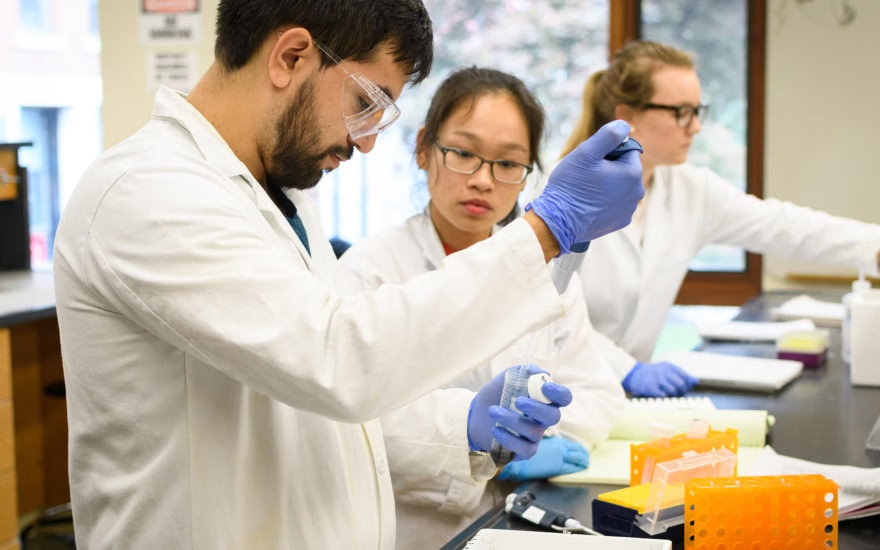
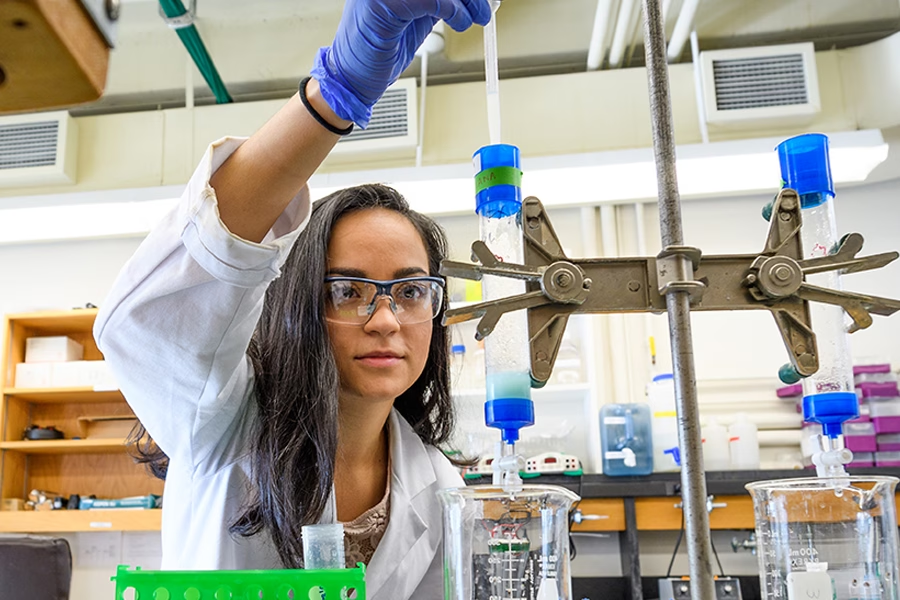
Why Study biochemistry and molecular biology at Clark?
- Pursue your degree — and valuable internships — in a region with a national and international reputation for excellence in biomedical innovation and education, including the University of Massachusetts Medical School and biotech companies that are right here in Worcester.
- Combine traditional “wet lab” biochemistry with chemical, biological, and computational tools to solve biology questions.
- Conduct research in Clark’s LEED Gold-certified Lasry Center for Bioscience, a 50,000 square-foot, state-of-the-art facility, and use specialized biology and chemistry research equipment normally found only in much larger departments.
4 + 1—An advanced degree within reach
The 4+1 Accelerated Master’s provides an opportunity to earn a pathway to a master’s degree — with one year of additional study and available tuition scholarships. Consider the following option for this major:
- Apply
- Request Info
Are you ready to take the first step?
Sign up to receive information on academics, student life, and the undergraduate admissions process.
Featured Courses
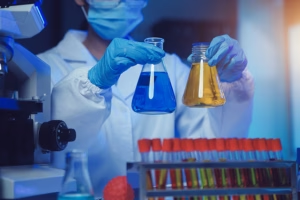
Chemistry and Biology of Medicine
Explore how currently available drugs interact with biological systems at the molecular level to combat a range of infections and diseases, and read journal articles to see examples of drug development research.
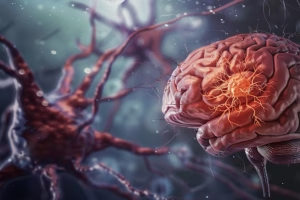
Neuroscience
Our nervous system enables us to learn, remember, think, and experience emotion. Explore how these critical systems develop and function—especially in mammals—and their relationship to behavior and disease.
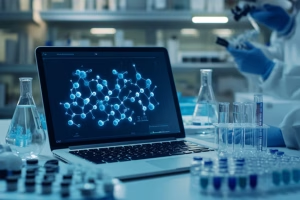
Computers in Biochemistry
Gain experience using software packages to analyze chemical and biochemical systems retrieval, such as analysis of DNA and protein sequence information, and simulations of protein dynamics and ligand binding.
The biochemistry and molecular biology major is highly structured and requires a solid grounding in biology and chemistry, as well as courses in physics and calculus. You also will take biochemistry, a yearlong course sequence that reviews our current understanding of the field, before moving on to more advanced courses, one of which must fulfill a techniques requirement.
Curriculum update
Effective fall 2025, Clark offers new majors a B.S. in Biochemistry and Molecular Biology instead of a B.A. Contact your advisor for details.
At Clark you’ll get more than a great education; you’ll also be prepared for a long, productive career and life of consequence. And once you’ve completed your degree, you can join other Clark alumni who have gone on to work for great organizations and attend some of the best graduate schools in the world. The following communities may be of interest:
Health Professions and Life Sciences
Science Data, and Technology
Sustainability, Climate, and Global Challenge
Veterinarian
MSPCA Angell Animal Medical Center, Boston, MA
Senior Scientist
ECI Biotech, Worcester, MA
Cardiothoracic Surgeon
Albany Hospital, Albany, N.Y.
Biochemist
Biogen, Weston, MA
Regulatory Associate
Genzyme, Cambridge, MA
Our robust Prehealth Advising Program is available if you’re interested in pursuing a career in the health profession.
The Clark Experience
The Clark Experience brings together the exceptional education you’ll receive in the classroom and so much more. Through focus and flexibility, it ensures you’ll leave Clark with the creativity, confidence, and resilience to succeed and lead a life of meaning and consequence.
Frequently Asked Questions
What can I do with a major in biochemistry and molecular biology?
The biochemistry and molecular biology major is highly structured and requires a solid grounding in biology and chemistry, as well as courses in physics and calculus. You also will take biochemistry, a yearlong course sequence that reviews our current understanding of the field, before moving on to more advanced courses, one of which must fulfill a techniques requirement.
Our robust Prehealth Advising Program is available if you’re interested in pursuing a career in the health profession.
What skills will I learn as a biochemistry and molecular biology major?
- How to design a hypothesis, and collect and interpret relevant data
- How to communicate information orally and in writing
- How to work as part of a team
What facilities and labs are available?
Learn about our biology and chemistry facilities and equipment available for teaching and research, and the resources at Clark’s Carlson Science Library.
Is there an honors program for biochemistry and molecular biology majors?
During your junior year, you might be accepted into the biochemistry and molecular biology honors program. Joining the program means you’ll work closely with a professor to create a thesis on a topic of your choice. Examples of recent honors thesis topics are:
- Effects of Light-Emitting Diodes on the Light Harvesting System of Green Photosynthetic Bacteria
- Understanding the Function of KIFAP3 and Its Possible Role in ALS
- Biophysical Studies of the Self-Assembly of the Amyloid b-2 Protein in the Presence of Rifamycin SV
- Gene Delivery Via Functionalized Poly(ethylene imine)-DNA Polyplexes
- Biochemical and Genetic Analysis of Octopamine Biosynthesis
Be a force for change.
Come study at a small research university with a strong liberal arts core.

